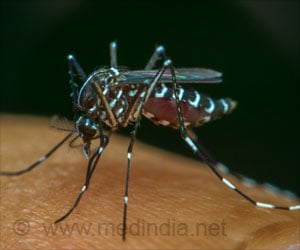A study will explore the combined effects of multiple stressors on cardiovascular health, focusing on disparities in gender & race within the military.

New Research Promises an Unprecedented Look at How Psychosocial Stress Affects Military Service Members' Heart Health
Go to source). The results will be used by the military to create health readiness and promotion programs for active duty and Reserve/National Guard members.
‘By addressing stressors like trauma and discrimination, researchers aim to improve #cardiovascular outcomes and reduce healthcare burdens in the military. #militarywellbeing #medindia
’





Supporting health promotion initiatives for the preparedness and wellbeing of service members is one of the Defense Health Agency's top goals.The study's value lies in its ability to examine bias and discrimination, child abuse and neglect, and the relationship between military pressures and health outcomes. Both the general stress load and the particular stressors that may have an impact on US service men's heart health will be evaluated.
López-Cevallos is collaborating with Sheila Castañeda, a research epidemiologist in the Deployment Health Department at the Naval Health Research Center and deputy principal investigator of the Millenium Cohort Study.
This cohort is the largest and longest-running prospective health study in U.S. military history, with more than 260,000 service members enrolled since 2001. The study is designed to examine the effects of military service on long-term health outcomes of service members and veterans.
The researchers will analyze survey data and DoD administrative and healthcare records from more than 58,000 military personnel who enrolled in the study in 2020-2021.
Advertisement
“Previous epidemiological research indicates social determinants of health, such as increased exposure to stress, may contribute to cardiovascular disease disparities among certain racial and ethnic civilian groups,” Castañeda says.
Advertisement
In addition to measuring the associations between various stressors and cardiovascular health, López-Cevallos and Castañeda will look at the moderating effects of protective factors – such as post-traumatic growth, social support, unit cohesion and military satisfaction – on the relationship between cumulative psychosocial stress and health outcomes.
“One of the things we’re able to do in this study is to look at the cumulative or synergistic effects of experiencing multiple, both acute and chronic, stressors,” López-Cevallos says. “There is little research that has looked at disparities by gender and among racial and ethnic groups within the military.”
The researchers will use the American Heart Association’s Life’s Essential 8, which are key measures of cardiovascular health, in their analysis. They include health behaviors, such as eating and sleeping well and not using tobacco, and health factors, such as blood pressure, cholesterol, diabetes and body mass index.
“We will look at the aggregate levels of stress of these service members and then also get more specific to tease out individual stressors, such as adverse childhood experiences or experiences with harassment and discrimination. Then we can recommend areas of focus within the military to inform programmatic and policy priorities,” López-Cevallos says.
Another goal is to effect better cardiovascular outcomes and reduce healthcare system burdens by addressing the psychosocial stressors. “The theory here is to tackle those upstream factors that would otherwise erode health outcomes and also increase utilization of more complex health services,” he adds.
- New Research Promises an Unprecedented Look at How Psychosocial Stress Affects Military Service Members’ Heart Health - (https:www.umass.edu/news/article/new-research-promises-unprecedented-look-how-psychosocial-stress-affects-military)
Source-Eurekalert















